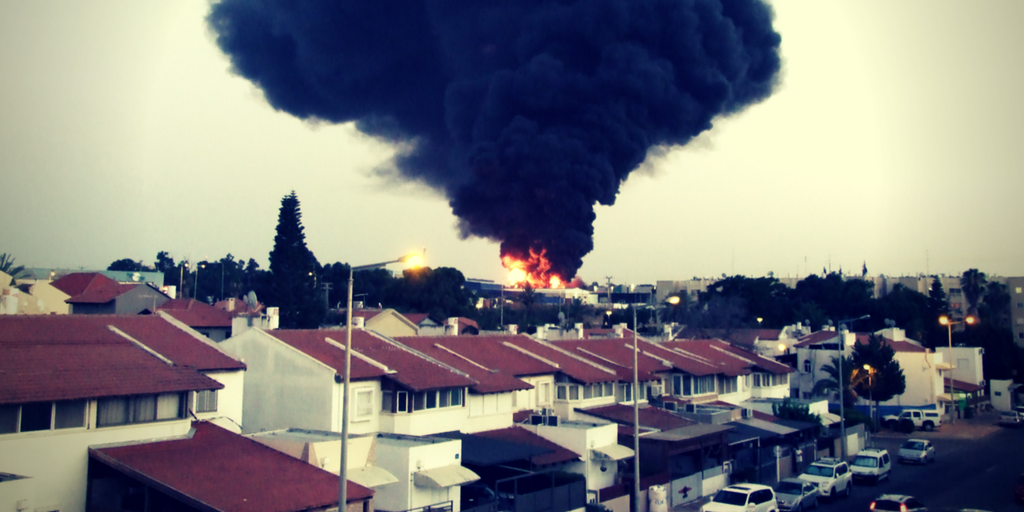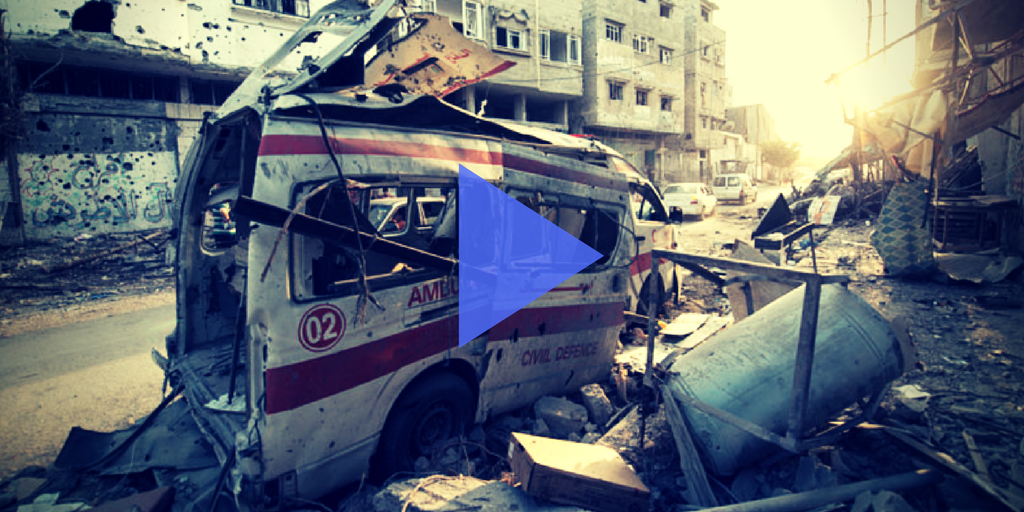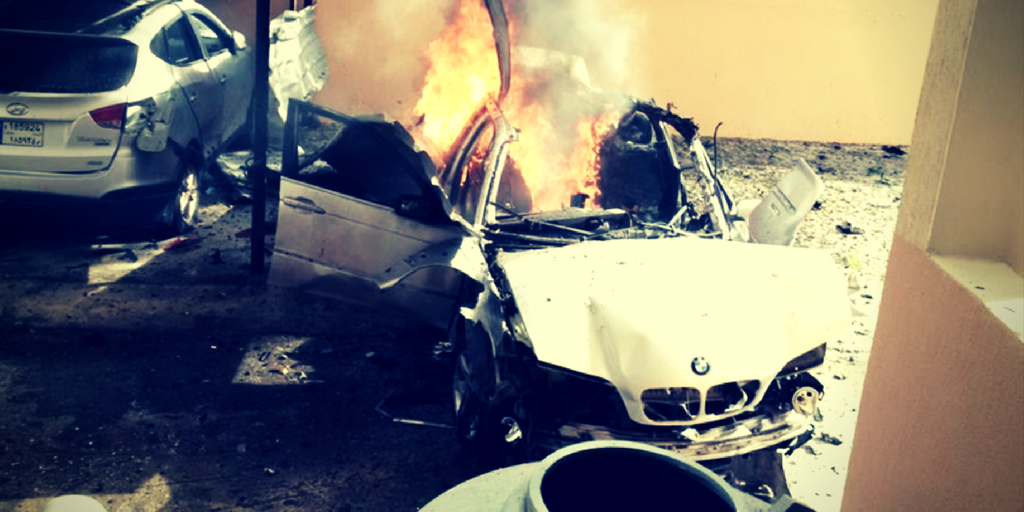Why a Palestinian state would be a disaster for Israel and the region.
Howard Kohr, AIPAC’s (American-Israel Public Affairs Committee) CEO created a bit of an uproar among certain Jewish organizations when he stated at the AIPAC conference earlier this month that, “We must work toward that future: two states for two people. One Jewish with secure and defensible borders, and one Palestinian with its own flag and its own future.” It was a reiteration of last year’s call on the U.S. administration to undertake steps that “Could create a climate that encourages the Palestinians to negotiate in pursuit of the goal we desire: a Jewish state of Israel living side by side in peace and security with a demilitarized Palestinian state.”
There is no question that Howard Kohr’s motives are pure and honorable in seeking a secure Israel alongside a peaceful and demilitarized Palestinian state. Unfortunately reality dictates otherwise. At the moment we actually have a need to solve more than a two-state question. We have a third state question and that is the Hamas ruled Gaza Strip. Hamas has vowed to fight until the liberation of all of Palestine and the destruction of Israel. The Los Angeles Times reported (March 1, 2017), “In a shift, the new document (as it relates to the Hamas Covenant-JP), formally endorses the goal of establishing a Palestinian state in Gaza and the West Bank, with Jerusalem as its capital, as part of a ‘national consensus’ among Palestinians (this was during the reconciliation process with Fatah and the Palestinian Authority-JP). While that may be a tacit acknowledgment of Israel’s existence, the revision stops well short of recognizing Israel, and reasserts calls for armed resistance toward a ‘complete liberation of Palestine’ from the river to the sea.”
The attempted assassination of the Palestinian Authority (PA) Prime Minister Rami Hamdallah earlier this month in Gaza, put a stop to the reconciliation efforts between Hamas and the PA, which is dominated by Fatah. Fatah spokesperson and Revolutionary Council member, Osama al-Qawasmi said, “Hamas is fully responsible for this cowardly operation that targeted the homeland, reconciliation, and unity. This cowardly act is outside of our values and national relations, and has repercussions.” It is clear that even if PA President Mahmoud Abbas should return to the negotiating table, and that is doubtful, Hamas will continue its campaign of terror against Israel. Hamas is unwilling to give up control of its arms, its rockets, or its mortars, to the PA.
In December, 1998, President Bill Clinton responded to Arafat’s letter. He thanked Arafat for the move in January of the same year, which allegedly struck out and amended the call in the Palestinian Charter for the destruction of Israel, by the raised arms verbal vote of the Palestinian National Council (PNC). The Palestinian Charter specifies in Clause 33 as amended in 1968, that the charter can only be changed if 2/3rds of its membership met to vote on the change. This did not occur. It is abundantly clear that the PA is still committed to the destruction of Israel, albeit, without openly using the extremist verbiage that Hamas is using. The continued incitement to violence and terror by Mahmoud Abbas, and the entire educational and informational apparatus of the PA that advocates hatred for Jews and Israel, negates the idea of a peaceful Palestinian state living side by side with the Jewish state of Israel.
The idea that a future Palestinian state would adhere to being a “demilitarized state” is totally unrealistic, especially if we consider the history and nature of Arab regimes. Louis Rene Beres, Emeritus Professor of International Law, has pointed out that even “If the government of a fully sovereign Palestinian state were in fact willing to consider itself bound by some pre-state agreement to demilitarize, in these improbable circumstances, the new Palestinian Arab government could likely identify ample pretext and opportunity to invoke lawful ‘treaty’ termination.
Palestine could withdraw from any such agreement because of what it would regard as a ‘material breach,’ a purported violation by Israel, one that had allegedly undermined the object or purpose of the accord. It could also point to what international law calls Rebus sic stantibus: ‘permissible abrogation,’ known more popularly as a ‘fundamental change of circumstances.’ If Palestine should declare itself vulnerable to previously unseen dangers, perhaps even from interventionary forces, or the forces of other Arab armies or insurgencies that it could claim might be trying to occupy it, it could lawfully end its previously codified commitment to stay demilitarized.
Professor Beres pointed out that according to the ‘Vienna Convention on the Law of Treaties’ (1969), an authentic treaty must always be between states.” Beres argues that “any treaty or treaty-like compact is void if, at the time of its entry into force it conflicts with a ‘peremptory’ rule of international law — that is, one from which ‘no derogation is permitted.’ As the right of sovereign states to maintain military forces for self-defense is always such a rule, Palestine would be within its lawful right to abrogate any pre-independence agreement that had (impermissibly) compelled its own demilitarization.”
The “2005 Gaza experience,” of unilateral withdrawal from Gaza, has taught Israel a painful lesson. Once it vacates land it will ultimately become a base for terror attacks against its cities and citizens. With Israel’s major cities within rifle fire of a Palestinian state, not to mention rockets, life inside Israel would become impossible. Palestinian terror attacks and Israel’s retaliation will serve as an excuse for the future state of Palestine to discard demilitarization. International guarantees, even by its closest allies won’t have any meaning. Israel learned this lesson following the Sinai Campaign of 1956. The Maritime powers guarantees (including the U.S.) didn’t prevent Egypt’s dictator, Abdul Nasser, from closing the Straits of Tiran and the Suez Canal to Israeli navigation. The International community did nothing.
A one-state solution in which Israel would absorb about two-million Palestinians as its citizens is not an ideal solution either. It isn’t so much the demographic threat that it once was, but rather a threat to peace within the country, where two cultures are in conflict. Perhaps the ideal solution is for the Kingdom of Jordan to federate with the West Bank Palestinians. Israel would annex area C under the Oslo Accords, where most of the 500,000 Jews live, and the Jordan River would serve as the international border between Israel and Jordan, which would insure Israel’s security. The Palestinian-Arabs will have a flag (the Jordanian and Palestinian flags are almost identical), a representation in the federated government, possibly a Palestinian Prime Minister (Jordan’s population is already 70% Palestinians), an outlet to the sea (Aqaba if not Gaza) and total religious homogeneity (Sunni-Islam).
Under normal circumstances many Israelis, much like Howard Kohr, would prefer a two-state solution. But the realities in the Middle East indicate that another authoritarian state (and most likely terrorist state) won’t contribute to stability or peace in the region. On the contrary, it would serve as a focal point of conflict. Perhaps in the next few generation things might change, but for now a Palestinian state would be a disaster for Israel and the region.
Originally Published in FrontPageMag.







